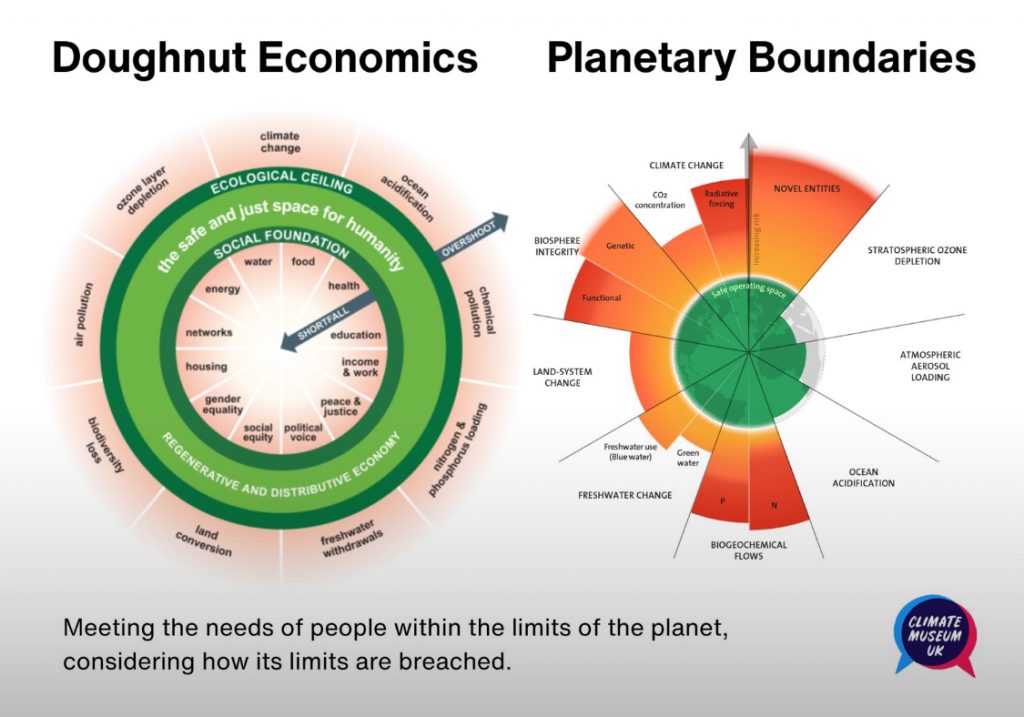I’m playing an active role in the formation of a Doughnut Action group for Norwich.
Norwich has many people and teams working to tackle social problems and the same for environmental issues. The question is, could we learn and be more effective if we came together from these two areas?
Doughnut Economics is one idea that other cities are using to achieve this. It’s about moving to a system that strives to meet the basic needs of all people within the limits of the planet.
Economist Kate Raworth developed this idea, illustrating it with a model like a doughnut:
- The inner ring is the social foundation, the minimum that everyone requires e.g. access to food, water, health or education.
- The outer ring is the ecological limits of the planet, which when breached result in climate change, biodiversity loss and various forms of pollution.
Current systems that provide nutritious food, energy, clothing, decent housing, transport and so on are known to be harmful, increasing ill-health and inequalities, destroying ecosystems, and disrupting the climate. Doughnut Economics is an approach to building communities where solutions to environmental problems don’t harm society, and solutions to social problems are not detrimental to the environment.
We had a first full meeting in February, at the Norwich Theatre Playhouse. I gave a presentation which I’ve written up in this article, Economics Past Earth’s Limits.
Since then, we’re in process of registering our group, getting a social media presence, and defining some aims and objectives below.
Overall mission: Working together in Norwich for the well-being of people within the limits of the planet.
- Achieve effective action in a City of inequality and on a planet with breached limits:
- Events and meetings to increase the effectiveness of groups & people working in these areas
- Support these groups by mapping, signposting and directly volunteering for them.
- Learn together about Doughnut principles & alternative economics:
- Effective action depends on shared learning within our group
- Spread this learning into other groups & services we are involved in.
- Communicate in innovative ways, and make a distinctive contribution to international Doughnut action:
- Explore the role of imagination and culture in the Doughnut
- Focus on engaging people inclusively to create change.
